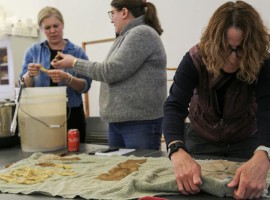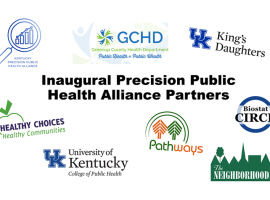UK Study Examines Appalachian Kentucky’s Breast Cancer Care Disparities

It is estimated that nearly 40 percent of women diagnosed with breast cancer will require a mastectomy. For those patients, breast reconstruction surgery is a valuable part of comprehensive breast cancer care as studies show it improves quality of life, self-esteem and sexuality.
Despite the benefits of breast reconstruction, women from Appalachia are less likely to have the surgery than non-Appalachian Kentuckians, according to a new study by the University of Kentucky Markey Cancer Center.
Published in Annals of Plastic Surgery, researchers used data from the Kentucky Cancer Registry to examine the disparities of breast cancer care between women in Appalachian and non-Appalachian Kentucky.
Breast cancer patients from Appalachia were 46% less likely to receive breast reconstruction surgery following a mastectomy. They were also older than their non-Appalachian counterparts and were more likely to have advanced stages of cancer — signs that suggest a lack of adequate care.
Health disparities in Appalachia are well-documented and access to and delivery of care remain a challenge for women with breast cancer who live in the region, says Dr. Henry Vasconez, UK HealthCare’s William S. Farish Endowed Chair of Plastic Surgery, and Dr. Ryan DeCoster, a postdoctoral research fellow with the UK Division of Plastic and Reconstructive Surgery and Markey Cancer Center.
While geographic distance to a plastic surgeon is a contributing factor, the lack of patient education plays a big role in the disparity. Many patients in Appalachian Kentucky are not told breast reconstruction is an option during their initial diagnosis and are therefore not referred to a reconstructive surgeon.
“Timely access to reconstructive breast surgery can improve quality of life,” Vasconez said. “Better education and awareness to all affected patients, especially those in Appalachia, provides for overall better comprehensive care.”
“The hope is that these findings will raise awareness of the benefits of breast reconstructive surgery and support efforts to increase access to comprehensive breast cancer care for women in the region—and that includes access to a reconstructive plastic surgeon,” DeCoster said.





